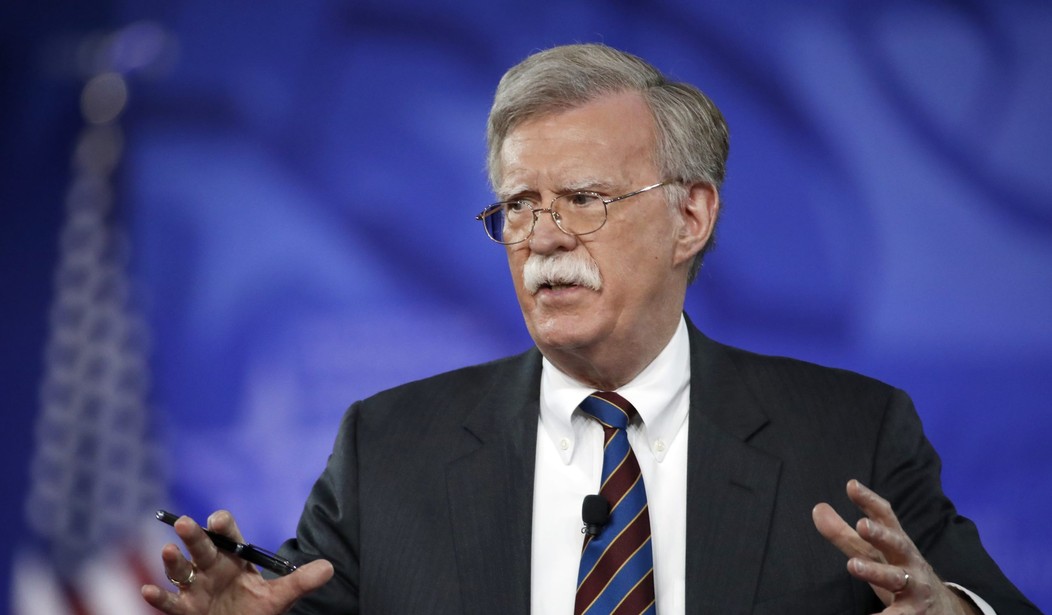As of today, John Bolton is no longer President Trump’s national security adviser, but whether he jumped or was pushed is a matter of some controversy. Trump tweeted: “I informed John Bolton last night that his services are no longer needed at the White House.” Bolton, however, disputed the idea that he was fired, himself tweeting: “I offered to resign last night and President Trump said, “Let’s talk about it tomorrow.” He later elaborated: “I offered to resign last night. There was no request for a resignation.” The more important question, however, is what this means for the Trump administration going forward.
“I disagreed strongly with many of his suggestions, as did others in the Administration,” said Trump, “and therefore I asked John for his resignation, which was given to me this morning. I thank John very much for his service. I will be naming a new National Security Advisor next week.”
According to Fox News, “Bolton’s removal comes after the hawkish adviser was reportedly sidelined from high-level discussions about military involvement in Afghanistan, after opposing diplomatic efforts in the region.” Fox quoted an unnamed “White House official,” who said: “Simply put, many of Bolton’s policy priorities did not align with POTUS.”
Bolton apparently opposed Trump’s plan to withdraw American troops from Afghanistan; he also, according to the Fox report, “led a quiet effort inside the administration and with allies abroad to convince the president to keep U.S. forces in Syria to counter ISIS and Iranian influence in the region”
The Washington Post stated several days ago that Bolton also opposed the Trump administration’s peace talks with the Taliban:
Competing versions of what led to the cancellation of the meeting and, at least temporarily, any further U.S.-Taliban negotiations, exposed internal administration tensions that have flared as a deal seemed near in recent weeks.
Those tensions have pitted Secretary of State Mike Pompeo, whose chief negotiator, Zalmay Khalilzad, said a week ago that agreement “in principle” had been reached after 10 months of talks with the militants, and Trump national security adviser John Bolton, who opposed the talks.
Zalmay Khalilzad is an old Bush administration retread who is to a tremendous degree responsible for our being bogged down in the endless quagmire and fruitless “nation-building” mission in Afghanistan. The Taliban are the last group with whom the United States should even be considering concluding a peace treaty, and it is curious that Trump would differ with Bolton over this after declaring the talks “dead” several days ago, after the Taliban killed an American soldier.
The Taliban are indefatigably committed to their jihad to regain control of all of Afghanistan and impose Sharia fully in that country. This stance will not allow for the possibility of their coexisting peacefully with the Afghan government and remaining within its own sphere of influence while allowing that government to operate within its own domains. The jihad imperative is maximalist; the Qur’an calls upon Muslims to fight until “religion is all for Allah” (8:39). If a jihad group enters into peace talks, it is not for the purpose of concluding a peace agreement in the Western sense, that is, with a view toward establishing the basis for an indefinite cessation of hostilities. On the contrary, it only views such talks as a means to attain its goals, and if the talks do not turn out to serve that purpose, they are to be ended.
What’s more, Muhammad’s breaking of a treaty he made with the pagan Quraysh, the Treaty of Hudaybiyyah when his forces had grown stronger and he no longer needed it became the paradigm for all treaty-making under Islamic law. If the Taliban do enter into an agreement with the United States, they will break it as soon as it has served the purpose they envision for it.
There is, however, a third alternative between withdrawing and entering into a spurious and fruitless peace agreement with the Taliban: leaving with no peace agreement, and working to contain the jihad threat from spreading beyond Afghanistan. But John Bolton is gone from the administration, the advocates of a peace agreement with the Taliban appear to be in the ascendancy, and no one seems to be considering that option.
Robert Spencer is the director of Jihad Watch and a Shillman Fellow at the David Horowitz Freedom Center. He is author of the New York Times bestsellers The Politically Incorrect Guide to Islam (and the Crusades) and The Truth About Muhammad. His latest book is The History of Jihad From Muhammad to ISIS. Follow him on Twitter here. Like him on Facebook here.










Join the conversation as a VIP Member